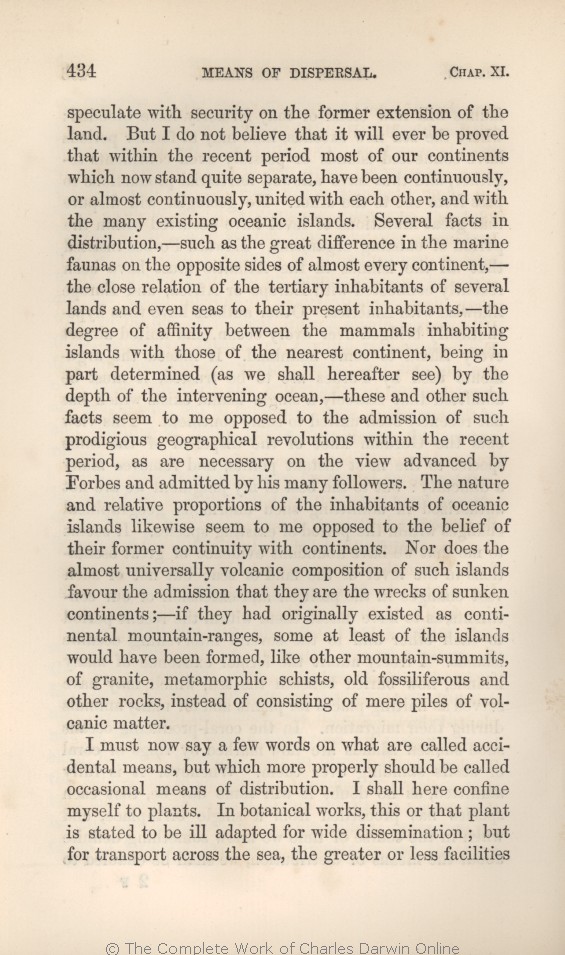speculate with security on the former extension of the land. But I do not believe that it will ever be proved that within the recent period
most of our continents which now stand | most of our continents which now stand 1869 1872 |
| continents which are now 1859 1860 1861 1866 |
| continuously, 1859 1860 1861 1866 1869 | | continuously 1872 |
| the 1866 1869 1872 | | a certain 1859 1860 1861 |
| affinity 1866 1869 1872 |
| relation (as we shall hereafter see) 1859 1860 1861 |
| mammals inhabiting islands with those 1866 1869 1872 |
| distribution of mammals and the depth 1859 1860 1861 |
| nearest continent, being in part determined (as we shall hereafter see) by the depth of the intervening ocean,— 1866 1869 1872 |
| sea,— 1859 1860 1861 |
| seem to me 1859 1860 1861 1866 1869 |
| are 1872 |
| necessary 1869 1872 | | necessitated 1859 1860 1861 1866 |
| many 1859 1860 1861 1866 1869 | many 1872 |
| likewise seem to me 1859 1860 1861 1866 1869 |
| are likewise 1872 |
| the 1866 1869 1872 | | their 1859 1860 1861 |
| of such islands favour 1866 1869 1872 |
| favour 1859 1860 1861 |
| continental mountain-ranges, some at least of the islands would have been formed, like other 1869 1872 |
| mountain-ranges on the land, some at least of the islands would have been formed, like other 1859 1860 1861 |
| OMIT 1866 |
| and 1869 1872 | | or 1859 1860 1861 1866 |
| ..... 1869 1872 | | such 1859 1860 1861 1866 |
|
|
I must now say a few words on what are called accidental means, but which more properly
should | should 1866 1869 1872 | | might 1859 1860 1861 |
| distribution. 1859 1860 1861 1866 1869 |
| distribution. I shall here confine myself to plants. 1872 |
| stated 1859 1860 1861 1866 1869 | | often stated 1872 |
| for transport across the sea, the greater or less facilities 1859 1860 1861 1866 1869 |
| the greater or less facilities for transport across the sea 1872 |
|









